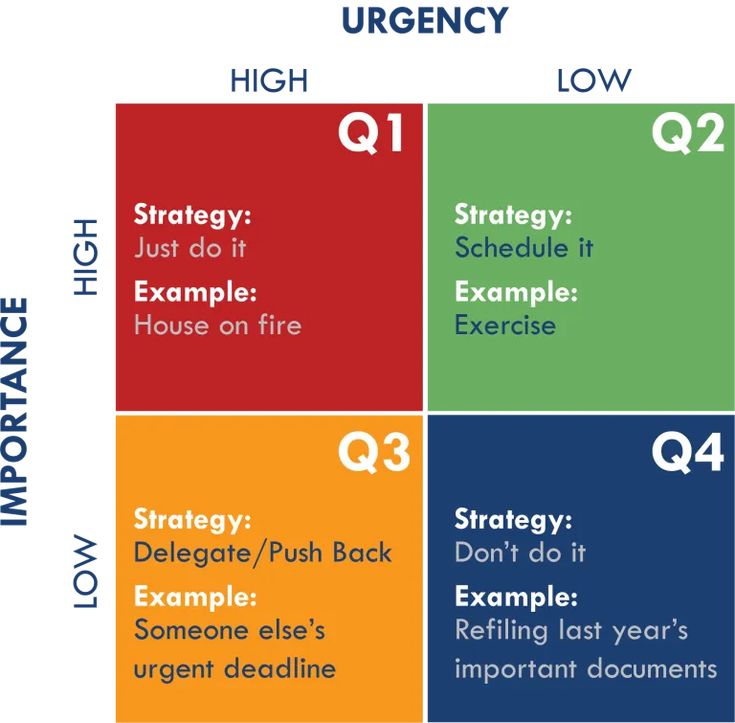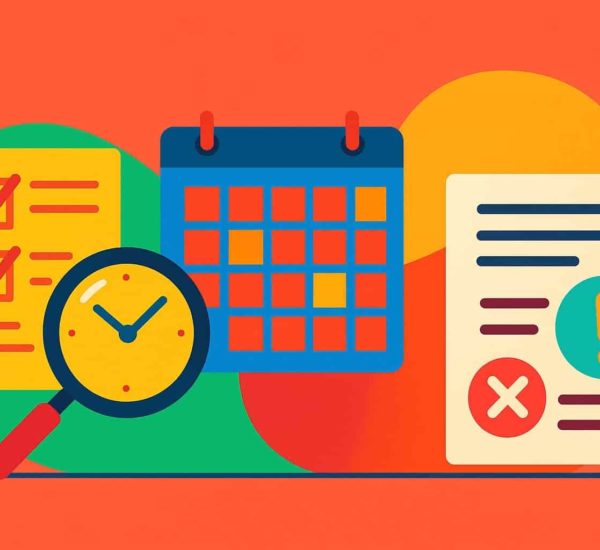The clock seems to be moving at a glacial pace, and you’re watching the minutes crawl by. Your desk is stacked with tasks, yet you find yourself stuck, feeling like time is stretching out endlessly. And the day doesn’t seem to end.
According to Gallup, only 15% of employees feel genuinely engaged at work, while the remaining 85% battle boredom, procrastination, and burnout. It’s a common struggle: not everyone is in their dream job, and even those who are, face tasks that are less than thrilling. Let’s face it—there are always parts of the to-do list that make us wish for a personal time machine to skip straight to the weekend.
But don’t worry—there’s a way to break free from this slow-motion trap. Imagine if you could transform your workday into a series of quick wins that make the clock seem to fly. It’s not about magic; it’s about smart strategies to how to make time go faster at work.
So if you are curious about how to make the workday go faster and ready to speed up those sluggish hours, let’s dive into practical tips on how to make time go by fast and turn your workday into a more dynamic experience.
Why Does Time Feel Like It’s Crawling at Work? Or is it Perhaps a Perception?
Ever notice how time seems to slow down when you’re slogging through tasks you’d rather avoid? The truth is, that our sense of time is influenced by our emotional state, engagement levels, and sense of purpose at work. When we’re enjoying what we’re doing and fully immersed, time seems to zip by. It’s as if the hours are on vacation, just like us.
But when we’re feeling exhausted, disengaged, or uninspired, the workday can feel like an endless stretch. In these moments, waiting for the clock to hit quitting time can feel like waiting for paint to dry. Our mood and energy levels play a crucial role in how we experience the passage of time.

Ways to Make Time Go Faster at Work
Leave the Clock Alone
Ever noticed how time seems to crawl when you’re fixated on the clock? It’s akin to watching paint dry. This constant clock-watching can make time feel like it’s moving slower, a phenomenon known as the stopped clock illusion.
To break free from this time trap, consider setting periodic alarms to remind you of the time instead of staring at the clock. Alternatively, immerse yourself in a task—be it drafting a report, brainstorming ideas, or organizing files—until you complete it before checking the time. This approach not only helps you stay focused but also makes the day feel shorter. As you become more engrossed in your work, you’ll find that the hours pass by more quickly!
Create a Routine
Work can often feel like a three-ring circus, with tasks flying at you from all directions. Multitasking might seem like the only way to manage it all, but it often leads to stress and burnout. Instead, try taming the chaos by creating a regular, predictable routine.
Think of a routine as your autopilot mode: once it’s set, you barely notice the gears turning. With a routine, you might suddenly realize you’ve completed a mountain of work without even noticing the time passing. It’s one of the best ways to make the workday go faster without even trying. While it might not make your tasks more thrilling, it can definitely help make the hours go by faster.
By sticking to a consistent schedule, you reduce the number of decisions you have to make each day, freeing up brainpower and energy for other things—like deciding what snack to have at your desk. Plus, when your day is more predictable, you might find yourself zipping through it without even realizing how much (or how little!) time is slipping by. Who knew that sticking to a schedule could be your secret weapon against the slow workday blues?
Use the “Do Not Disturb” Feature
“Your package has been shipped.”
“You have 20 new emails waiting for you.”
“See what your friends have been up to today!”
Sound familiar? These notifications are like digital mosquitoes, constantly buzzing and pulling your attention away from work. It’s easy to get sucked in and waste time, but figuring out how to make time go by faster at work requires focus, not distractions.
To stay on track, enable “Do Not Disturb” mode. Here’s how to minimize interruptions and make your day more productive:
- Silence Your Devices: Mute your phone and smartwatch to prevent constant buzzing and ringing.
- Disable App Notifications: Use asynchronous communication tools to avoid the temptation to respond immediately.
- Close Unnecessary Tabs: Keep your browser focused on work and close tabs for social media and shopping sites.
- Find a Quiet Space: Work from a quiet area or use noise-canceling headphones to help you concentrate.
By reducing distractions, you’ll find that time moves faster, and you’ll finally figure out how to make time pass by faster during your workday. Remember, those notifications will still be there when you’re done.
Break Down Boring Tasks
When you’re faced with tasks that seem daunting or downright dull, it’s easy to procrastinate. To make these tasks more manageable, break them into smaller chunks.
Instead of tackling everything at once, alternate between tasks you enjoy and those you dread. Start with something you like, then switch to a less exciting task for a bit, and then go back to something enjoyable. This way, you maintain your motivation and avoid getting bogged down.
By mixing things up, you’ll keep your energy levels up and discover how to make the workday go by faster. Plus, you’ll be surprised at how much you accomplish without even realizing it.
Practice Mindfulness
Feeling like time is dragging? Mindfulness can help shift your perception. By practicing mindfulness, we cultivate awareness and fully engage with the present moment, which helps reduce feelings of time pressure.
To use mindfulness to make time go by faster at work:
Take a Walk: Step away from your desk, if possible. Focus on sensations like the breeze, the sun, or the textures under your feet.
Desk-Based Mindfulness: If you can’t leave, focus on your body from head to toe. Notice areas of tension and relaxation.
By being present, you can ease stress and find that how time goes by at work feels more manageable.
Use Music to Boost Productivity
Can music really make you work faster and learn better? The science is still mixed, but your personal preferences and associations with music might just make it worth a try.
Some studies suggest that epic orchestral music can inspire empowering thoughts, while others find that instrumental jazz or drum & bass can help keep you energized. For a mellow start to your day, lo-fi beats might be the perfect choice.
Even if music primarily lifts your mood, it can still help you make time go by faster at work.
Pro-tip: Create playlists for different moods or tasks in advance. This way, you’ll be prepared and avoid wasting time searching for the perfect track.
Gossip Sesh With A Colleague
Time tends to fly when you’re working alongside people you enjoy. Collaborating with a colleague can make tasks more enjoyable and boost your efficiency. It also enhances your mood, energy levels, understanding of your work, and team engagement.
For remote teams, maintaining social connections can be a bit challenging. Here are some ways to keep the camaraderie alive:
Chat with a Colleague: Connect on topics beyond work to build rapport.
Join or Organize Online Activities: Engage in virtual scavenger hunts, personality tests, or weekly photo contests.
Start Fun Traditions: Create inside jokes or share memes and videos in group chats.
Have an Accountability Buddy: Team up with someone to keep each other motivated and on track.
By fostering these connections, you can make the workday feel more engaging and discover how to make time go by faster at work.
Use the Eisenhower Matrix to Prioritize
Feeling swamped with tasks? The Eisenhower Matrix can help you cut through the chaos and focus on what matters. This tool sorts tasks into four categories to streamline your priorities:
| Quadrant | Example Tasks |
| 1. Urgent and Important (Do): | Complete projects before deadlines |
| – Address immediate changes in workload | |
| 2. Not Urgent but Important (Schedule): | – Reply to important emails |
| Set up meetings or appointments | |
| 3. Urgent but Not Important (Delegate): | Return items within a specified period |
| 4. Not Urgent and Not Important (Eliminate): | Organize files that will be deleted soon |

By applying the Eisenhower Matrix to your task list, you can gain clearer focus and direction. And if the matrix reveals you have more tasks than expected, the urgency might just help make the workday go by faster.
Refresh Your Workspace Aesthetics
Feeling stuck in a rut? Changing up your workspace can be a game-changer. If you have the option, give your environment a makeover to boost productivity and enthusiasm.
Here are some ideas:
Redecorate: Add plants, artwork, or new office supplies to invigorate your space.
Organize: Rearrange your desk or upgrade storage solutions to create a more pleasant and efficient work area.
Lighting and Color: Experiment with different lighting or colors to find what enhances your focus and mood.
For remote workers:
- Home Office Upgrade: Add personal touches like inspiring artwork, a comfy chair, or better lighting.
- Virtual Backgrounds: Use engaging or calming virtual backgrounds for video calls to keep things fresh and fun.
- Declutter: Keep your workspace tidy to create a more inviting and productive environment.
If your company policy allows it, a fresh environment might just help you make the workday go by faster and keep boredom at bay. Just make sure to check with your higher-ups before making any major changes!
Set Mini-Goals and Rewards
Transform your workday into a series of engaging challenges by setting mini-goals. Breaking down larger tasks into smaller, more manageable objectives helps to keep you focused and motivated.
For example, if you’re working on a big project, set specific milestones to reach throughout the day. Once you achieve a mini-goal, reward yourself with something enjoyable. This could be a quick coffee break, a short walk, or a few minutes of your favorite podcast. These rewards not only offer a mental break but also help make time go by faster at work by creating a sense of accomplishment and progression.
Celebrate these small wins to keep your energy levels up and prevent the feeling of being overwhelmed by larger tasks.
Incorporate Time-Tracking Techniques
Implementing time-tracking techniques can significantly impact how quickly time seems to pass at work. By using a time-tracking app like AttendanceBot, you can gain insights into how your time is spent and adjust your work habits accordingly.
We hope you loved these tips to make your time at work go faster!



